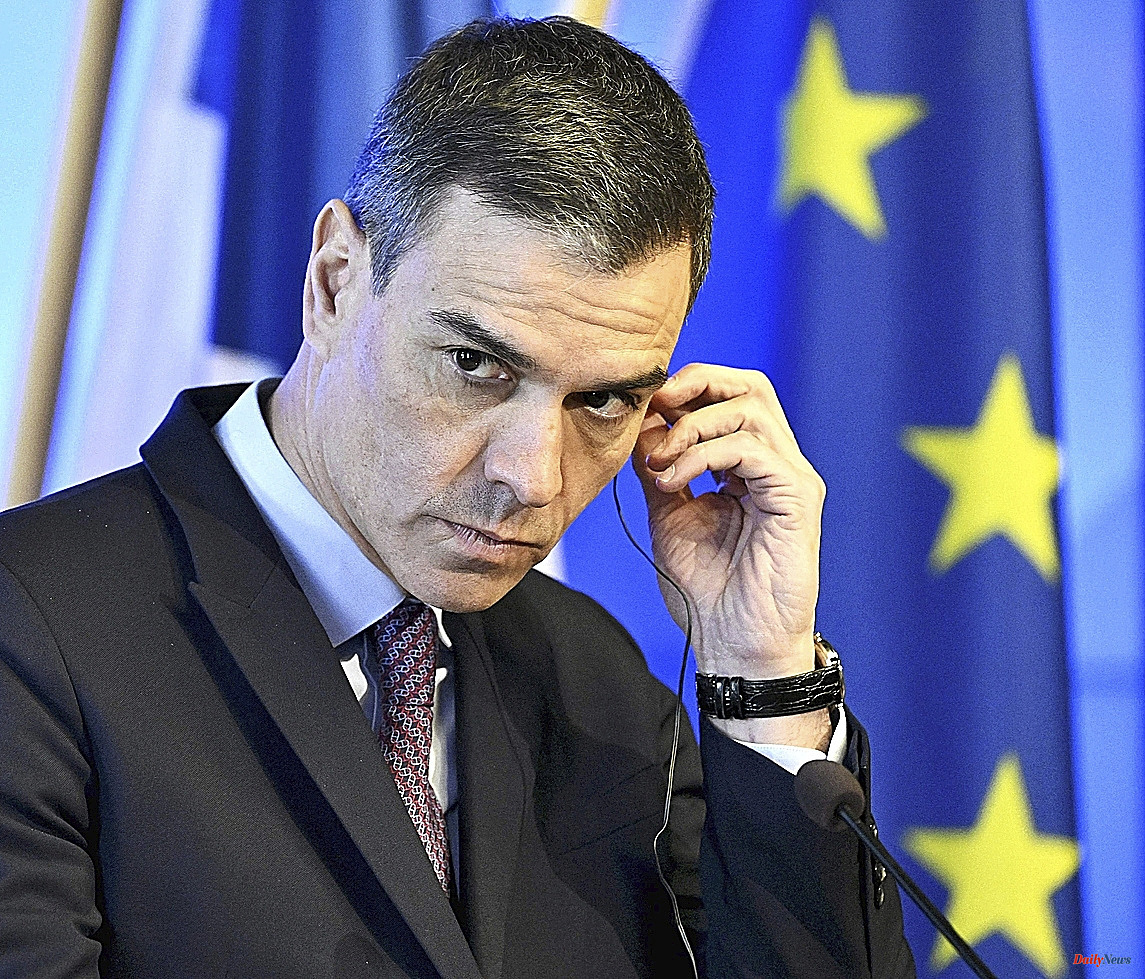Europe faces a decisive horizon. In just over a year, in May 2024, the European elections are held and the consequences of the Covid-19 pandemic and the war in Ukraine have exposed the weaknesses and shortcomings of the Old Continent. Within this framework, Spain assumes the rotating presidency of the European Union in the second half of this year. At La Moncloa they are aware of the importance of time and of the image that is transferred from this milestone, which is why they have been working for months to prepare this event. Pedro Sánchez is immersed in a tour, in five chapters, which will take him to visit the main European capitals before July 1 to "pave the ground". The objective is to prevent the division between north and south, the block policy, from frustrating his mandate at the helm of the EU.
The Spanish presidency coincides in time with the hangover of the municipal and regional elections and with the prelude to the general elections at the end of the year. He grants Sánchez a powerful window of exposure to the interior and, above all, to the exterior, although campaign experts agree that an event like this does not move much vote. In any case, La Moncloa is determined that his mandate reaches the highest level of success possible. That explains Sánchez's intense international schedule, which this week has led him to visit Ireland, Denmark and Finland. Countries, these last two, with distant positions with Spain in terms of migration and economics.
Under Sánchez's mandate, the EU must take important steps on two very sensitive issues: the Immigration and Asylum Pact and the need to renew fiscal rules. These are issues that Sánchez must champion and lead, since in the migratory aspect the European Commission has already proposed a new pact and the mandate, "given the urgency of the local situations in several Member States", is to try to reach a political agreement on the fundamental principles before the end of the year. And in the case of fiscal rules, the intention is that the new rules - it was decided to extend the suspension of the current ones until the beginning of 2024 - arrive in time for the approval of the 2024 Budgets.
In both matters there are distant positions, blocks, that make the agreement a rocky road: restrictive policies and even walls against the purpose of working with the countries of origin of migratory pressure; more firmness and strict rules versus flexibility and autonomous economic margin. But there were also distant positions between Spain and the Netherlands in economic matters -The Netherlands was one of the so-called frugal territories, along with Denmark and Finland, among others, which initially opted for more austere policies and less aid to overcome the pandemic due to Covid and its consequences. And yet, Spain and the Netherlands signed a document in April 2022 in which they defended relaxing the European deficit and debt rules, with the purpose of La Moncloa to break this bloc policy.
In his bilateral meetings this week with the Irish prime minister, and the Danish and Finnish prime ministers, these issues, along with Europe's strategic autonomy, the green transition and the war in Ukraine, have been crucial. "We have talked about the need to reach an agreement on what we have called the Immigration and Asylum Pact," Sánchez explained in Dublin.
"We want this debate not to divide Europe, that it not be separated between those countries of first entry and those countries that want to control what is called "secondary movements", he explained, evidencing that division that exists in the position on the countries that are the border of Europe, fundamentally those of the South, such as Spain, and those of the center and interior. "What we want is for there to be an agreement that is inclusive, that is balanced between what is called responsibility and the solidarity of all Member States. And well, Spain, of course, with a constructive attitude is going to try to favor this debate, which is undoubtedly very important for our societies".
A sample of this purpose of avoiding division is that among the appointments that the Government is preparing is the holding of a meeting between the European Union and the southern neighborhood, of North Africa. Because the purpose of Sánchez is not only to avoid the clash between positions that, today, are distant in migration and economy, but also that the Mediterranean basin acquires more influence and weight in the EU, beyond what the control of migratory flows and, in particular, of irregular migration.
"We face these challenges with a spirit of compromise to bring positions closer, to build bridges, to avoid a policy of blocs, which I believe has also been successful, first during the pandemic and now also in response to Putin's challenge", is the reflection that Sánchez moved in Helsinki, after his meeting with the Prime Minister of Finland, Sanna Marin, as a synthesis of the challenge, and at the same time fear, of his next presidency of the EU.
According to the criteria of The Trust Project












